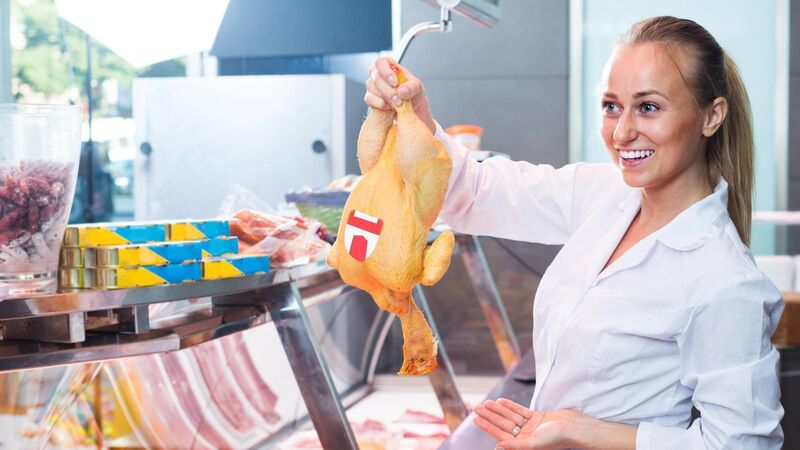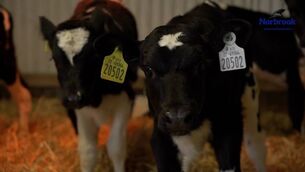New customs rules to protect human, animal and plant health

Food companies trading between Ireland and the UK must calculate what impact trade tariffs will have on how competitive their products will be.
Minister for Agriculture, Food and the Marine, , advises businesses trading to, from or through the UK, to take steps to understand imminent Brexit impacts

The UK’s decision to leave the EU will change many aspects of our relationship with our nearest neighbour and most important trading partner.
Whilst we regret the UK’s decision, we respect it. We will, however, have to prepare for the enduring changes that this decision brings for our businesses and citizens.
The Brexit transition period will end on 31st December. Regardless of the outcome of the EU-UK negotiations on a future trading relationship, a number of impacts are already clear. From the 1st of January 2021, the UK will be outside the EU's Single Market and Customs Union.
Any business that moves goods to, from or through the UK, excluding Northern Ireland, will be subject to a range of new customs formalities, food safety checks and other regulatory requirements, that do not apply to such trade today.
The Withdrawal Agreement, including the Protocol on Ireland and Northern Ireland means, that these checks will not apply to trade between Ireland and Northern Ireland.
From January, new customs and regulatory requirements, including Sanitary and Phytosanitary (SPS) controls will apply to imports of agri-food products from Great Britain. SPS rules on food imports from third countries are an important component of the rules of the Single Market. They are in place to help protect human, animal and plant health.
Complying with customs and regulatory requirements will increase the cost of trade and will require additional time compared with the frictionless trade we have today. Every effort will be made to ensure the minimum possible disruption to trade flows and supply chains. It is crucial however, that businesses, especially the operators responsible for imported consignments, prepare for these controls now.
Export certification will be required for animals and goods of animal or plant origin exported to or through Great Britain. These requirements will set by the UK authorities. For goods of animal origin, the UK is expected to implement certification requirements from 1st April 2021.
My Department is continuing to engage with UK’s Department for Environment, Food and Rural Affairs (DEFRA) on the detailed requirements in the UK Border Operating Model, including in relation to the export health certification requirements, some of which remain unclear. My Department will be ready to provide certification for exports to Great Britain but depending on the exact nature of the detailed requirements, significant challenges may lie ahead.

The UK landbridge is a critically important route to market for Irish and EU traders, especially those in the agri-food sector. Controls at ports are likely to lead to delays at ports immediately after the end of the transition period, with Dover-Calais identified as a particular bottleneck.
My department will work with counterparts in other Member States an the UK to try to ensure that the UK landbridge remains an effective and efficient route to market post-Brexit. There will be delays, however. Businesses should consider all of their options, including switching to direct routes to the Continent where feasible, to avoid customs and regulatory requirements altogether.
It goes without saying that the Irish agri-food and fisheries sector has a very strong interest in seeing a deal achieved with the UK. The situation remains that sufficient progress has not yet been made on a number of key areas of EU and Irish interest. These include fisheries, level playing field and governance, but of course the negotiations in all of these areas are intensifying.
All of these issues are critically important for Ireland. The challenges facing fisheries are unique, however, because they go to the heart of rights of access and quota shares in our traditional fishing grounds. I do not underestimate the challenge Mr Barnier faces in the fisheries dimension of these negotiations. He has a deep understanding of Ireland’s political and economic sensitivities, however. He also understands that Ireland wants a trade agreement with the UK but equally, that we are determined to protect our fishing sector as well.
Time is short, but I remain hopeful that we can avoid a No Deal situation.

Without a Free Trade Agreement between the UK and the EU, tariffs will apply to agri-food trade in both directions between Ireland and the UK (excluding Northern Ireland).
Analysis by my Department suggests that the combined cost of a UK tariff regime based on EU tariff rates, using the profile of Ireland’s agri-food exports in 2019, would have been between €1.37 and €1.55 billion. The combined impact of the tariffs for all 2019 agri-food imports to Ireland from the UK would have been between €715-€970 million.
The Government has put measures in place to support the agri-food and fisheries sector over recent budgets. These measures have been aimed at enhancing competitiveness and market diversification in light of Brexit.
The central scenario underpinning Budget 2021 was that the transition period would end without a Free Trade Agreement. Therefore, the Government is establishing a €3.4 billion Recovery Fund to address the twin challenges of Brexit and COVID-19.
At EU level the European council agreed a €5 billion Brexit Adjustment Fund intended to help those Member States most affected by Brexit. I will work to ensure that Ireland’s agri-food sector gets an adequate allocation from that funding.
Deal or no deal, reducing our overall dependence on the UK market, whilst recognising its importance, will continue to be a priority for my Department and its agencies. There have been a number of significant successes in recent years, including the opening of the Chinese and US beef markets to Irish beef. Covid 19 has impacted on the way we do our business with virtual Trade Missions replacing in-person trade missions for the time being.
My Department has also provided additional funding to Bord Bia to support marketing and promotion activities and to build a premium position for our food and drink exports in the UK, European and wider international markets.

This is a very challenging time for businesses already trying to cope with the Covid-19 pandemic. But we have to be clear about the real challenges that lie ahead. It is essential that businesses depending on trade to, from or through the UK, take immediate steps to understand the impacts that new regulatory processes will have on their operations. This requires planning and investment. Detailed information on the requirements and supports is available at www.gov.ie/agriculture/brexit.








